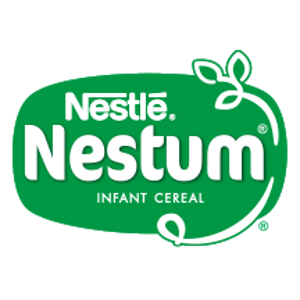
How To Help a Picky Eater
Learn more about how to help your baby when he becomes a picky eater. Click here to read about some tips and alert signs.
As a parent, you may face the common challenge of dealing with a picky eater. It's a situation that can be both frustrating and concerning, but rest assured, you're not alone. Many parents wonder how to ensure their child gets the nutrition they need while respecting their preferences.
Understanding the dynamics of picky eating and employing effective strategies can help ease the stress and promote healthier eating habits for your little one.
Picky eating is often a normal phase of development, as children assert their independence and explore their likes and dislikes. However, it can still be worrisome, especially when it seems like your child's diet consists solely of a few preferred foods.
In Baby&Me, we'll explore a variety of approaches to help your picky eater expand their food choices and develop a positive relationship with food. There are numerous strategies you can employ to make mealtimes more enjoyable and nutritious for the whole family.
Why Your Baby Is a Picky Eater?
Understanding why your baby is exhibiting picky eating behaviors can provide valuable insight into how to address the issue effectively. While every child is unique, several common factors may contribute to picky eating tendencies.
Picky eating often coincides with key developmental milestones, such as the introduction of new foods or the assertion of independence. Babies may exhibit neophobia, a fear of new foods, as they become more aware of their surroundings and preferences.
Babies have sensitive palates and may be more sensitive to certain textures, flavors, or smells. They may reject foods that feel unfamiliar or unpleasant in their mouths.
If your baby has been primarily exposed to a narrow range of foods, it may be hesitant to try new flavors and textures. Limited exposure can lead to a reluctance to accept unfamiliar foods.
The atmosphere during mealtime plays a crucial role in shaping your baby's eating habits. If mealtimes are stressful or rushed, your baby may associate negative emotions with food, leading to picky eating behaviors.
By recognizing these potential factors, you can begin to address your baby's picky eating habits with patience and understanding. Experimenting with different approaches and remaining consistent in your efforts can help your baby develop a healthier relationship with food over time.
Tips to Help a Picky Eater
Introducing new foods and encouraging healthy eating habits in a picky eater can be a challenging but rewarding journey. With patience, creativity, and persistence, you can gradually expand your child's palate and promote a balanced diet.
Offer a Variety of Foods
Present a diverse array of foods, including different colors, textures, and flavors, to expose your picky eater to a wide range of options. Be persistent and patient, as it may take several attempts before they are willing to try new foods.
Be a Role Model
Children often mimic their parents' eating behaviors, so lead by example by enjoying a varied and nutritious diet yourself. Eat meals together as a family whenever possible and demonstrate enthusiasm for trying new foods.
Make Mealtime Fun
Create a positive and relaxed atmosphere during mealtimes to make the experience enjoyable for your picky eater. Use colorful plates, fun utensils, and creative presentation to make meals visually appealing.
Involve Your Child in Meal Preparation
Engage your picky eater in meal preparation activities, such as washing vegetables, stirring ingredients, or assembling simple dishes. By involving them in the cooking process, they may feel more invested in trying the final product.
Respect Your Child's Preferences
While it's essential to encourage your picky eater to try new foods, respect their preferences and avoid pressuring or forcing them to eat. Offer choices within healthy options and celebrate small victories along the way.
Be Patient and Persistent
Changing eating habits takes time, so be patient and persistent in your efforts. Continue to offer a variety of foods and remain positive, even if progress is slow. With consistency and encouragement, your picky eater can develop a more adventurous palate over time.
By implementing these tips and strategies, you can help your picky eater develop healthier eating habits and enjoy a more varied diet. Remember to approach the process with patience, understanding, and a sense of adventure as you explore new foods together.

Signs of Alert When Your Baby Is Eating
While picky eating is common among babies and toddlers, certain signs may indicate underlying issues or concerns that require attention.
- Persistent refusal to eat or extreme fussiness during mealtimes may signal underlying issues such as gastrointestinal discomfort, oral motor difficulties, or sensory sensitivities.
- Babies require a balanced and nutritious diet to support their growth and development. If your baby consistently consumes very small amounts of food or shows little interest in eating, it's essential to ensure they are getting adequate nutrition.
- Gagging and choking are common reflexes that babies may experience as they learn to eat solid foods. However, persistent gagging or choking episodes during mealtimes may indicate difficulty swallowing or other oral motor issues.
- Difficulty swallowing, excessive drooling, or frequent coughing or choking during meals may indicate swallowing difficulties or oral motor delays.
- Significant or unexplained weight loss, poor weight gain, or failure to thrive despite adequate caloric intake may indicate underlying medical or feeding problems.
If you observe any of these signs or have concerns about your baby's eating habits, seek for guidance from a pediatrician or feeding specialist. Early intervention and support can help address underlying issues and promote healthy eating habits for your baby.
By understanding the reasons behind picky eating behaviors and implementing effective strategies, you can help your child develop a positive relationship with food and establish healthy eating habits for life.
Remember to be patient, persistent, and flexible in your approach, and always prioritize your baby's nutritional needs and well-being. With love, support, and guidance, you can empower your picky eater to explore new foods, expand their palate, and enjoy a diverse and nutritious diet.

Gain a better understanding of your child's development with the help of our stages





































